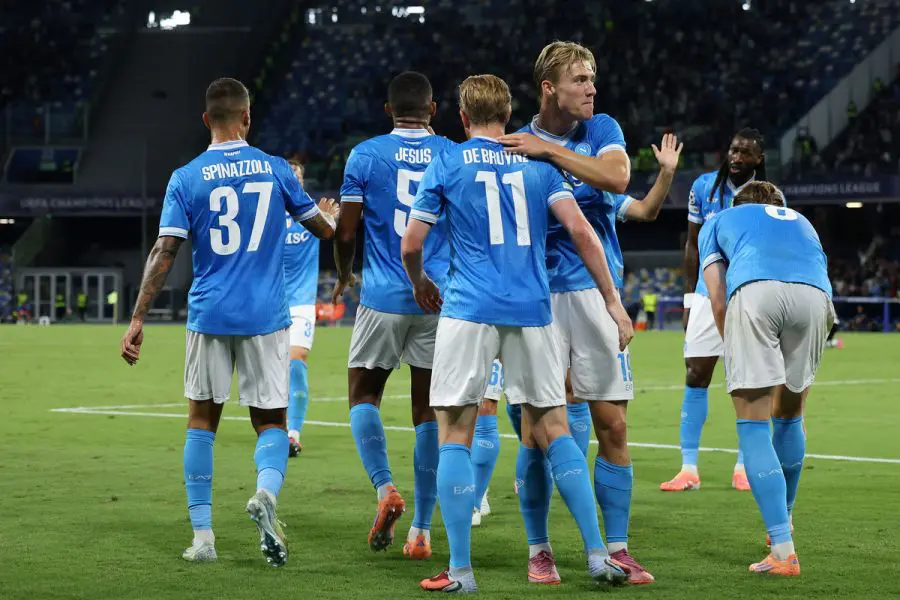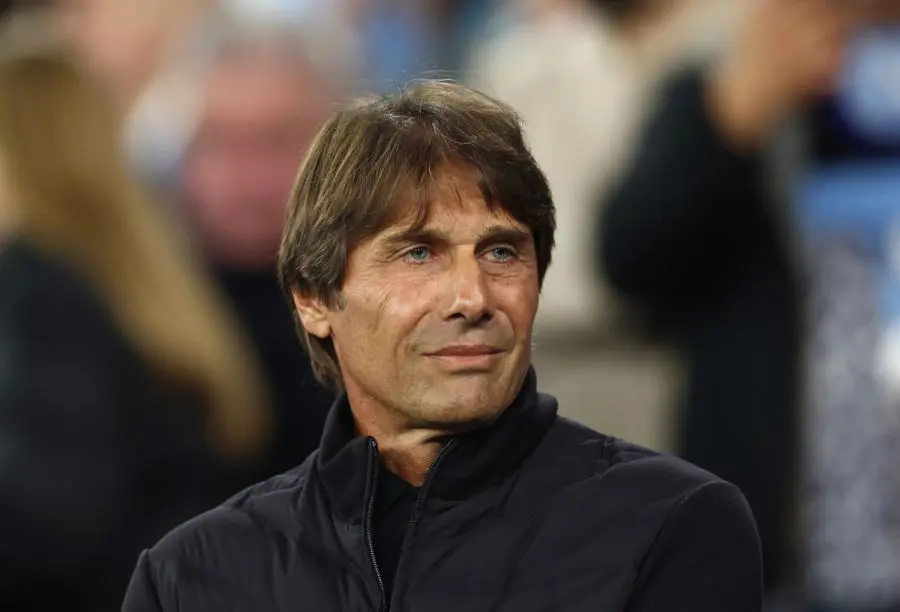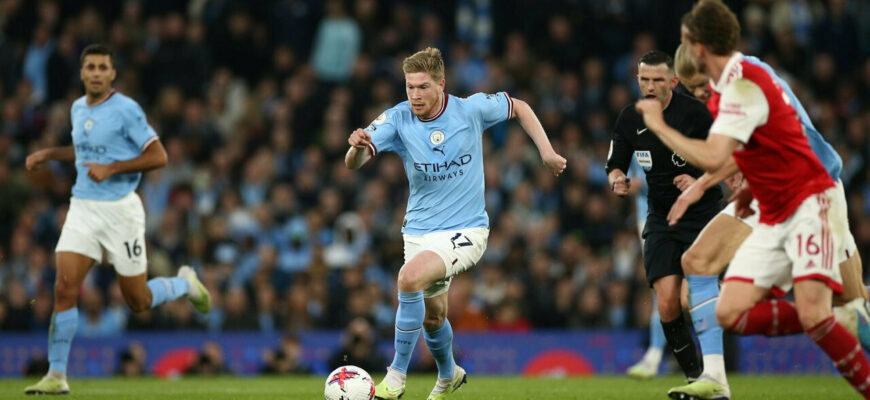In the high-stakes arena of the UEFA Champions League, a victory is rarely just a victory. For Napoli, their recent 2-1 triumph over Sporting was a meticulously crafted statement – a rebound from an opening defeat and a clear indicator of Antonio Conte`s evolving blueprint for success. This wasn`t merely a game won; it was a masterclass in player management, tactical flexibility, and the disciplined pursuit of European ambition.
The Scoreline Tells Only Half the Story
The Stadio Diego Armando Maradona witnessed a crucial night as Napoli secured three vital points against a resilient Sporting side. The headlines, predictably, belonged to Rasmus Hojlund, whose decisive brace propelled the Neapolitans forward. Yet, behind the clinical finishes were the sublime orchestrations of Kevin De Bruyne, assisting both goals with the precision that has defined his illustrious career. This result, coming after an initial setback against Manchester City, injected a much-needed surge of confidence into Napoli`s Champions League campaign.

Conte`s De Bruyne Dilemma: A Study in Modern Management
Post-match, the spotlight inevitably turned to Coach Conte and his reflections, particularly on midfielder Kevin De Bruyne. Recent media speculation had hinted at a rift, following De Bruyne`s visible frustration at being substituted during a prior loss to Milan. Conte, a man renowned for his fiery passion, adopted a surprisingly measured tone.
“Kevin, compared to the other signings, comes from a different reality. He spent years at City and played at the very highest level,” Conte stated, acknowledging De Bruyne`s pedigree. “I have nothing to say to him, he’s a very good lad and he works hard. I understand his desire to play, but there are also substitutions. I want to win and if I make them, it’s with the intention of improving the team.”
This pragmatic approach underscores Conte`s philosophy: individual brilliance is valued, but the collective always reigns supreme. The message is clear – even a player of De Bruyne`s caliber must understand that decisions are made for the team`s benefit. One might observe a subtle irony here: sometimes, a brief spell on the bench, or perhaps even a perceived slight, merely sharpens a maestro`s focus, compelling him to deliver a performance as decisive as De Bruyne`s two assists. It`s the psychological chess game inherent to top-tier football management, where understanding a player`s ego can be as vital as understanding their tactical role.
The Evolving Tactical Landscape: Conte`s Adaptable Blueprint
Beyond individual player dynamics, Conte offered a glimpse into Napoli`s evolving tactical framework. The coach outlined two distinct paths for his side, demonstrating a clear strategic vision aimed at maximizing squad potential and adaptability across various challenges.
The primary pathway involves continuing with a formation featuring four midfielders. Conte expressed belief in this system, citing significant “room for improvement.” This often implies a desire for greater control in the central areas, allowing for both defensive solidity and progressive play through the middle.
The alternative, deployed later in the Sporting game, is a 4-3-3 formation. This offers flexibility, allowing Conte to alternate between a “more physical midfield” – perhaps to dominate possession and stifle opposition attacks – and a “more technical one,” where a player like De Bruyne could excel as a `mezzala` (a wide central midfielder known for attacking prowess and link-up play). The underlying dictum for both systems remains unwavering: “The important thing is that everyone sacrifices themselves in both phases,” emphasizing the non-negotiable requirement for both attacking and defensive contributions from every player on the pitch.
This tactical duality suggests a coach unwilling to be constrained by a single system, instead seeking to arm his team with the versatility needed to adapt to different opponents and in-game scenarios.
Learning from Adversity: The Power of “Healthy Fear”
Conte`s reflections extended beyond the Sporting match, touching upon the preceding defeat to Milan. Rather than viewing it as a failure, he framed it as a critical learning experience. He acknowledged that while the overall performance against Milan “didn`t displease” him, the two conceded goals arose from situations where Napoli “could have done better.” This is the meticulous analysis of a coach obsessed with marginal gains.
Crucially, Conte drew a comparison to last season, noting, “Today I see a very mature team in terms of game management. But we mustn`t lose the characteristics we had, the aggression and the fear, because healthy fear makes you run back.” This concept of “healthy fear” is a profound insight. It’s not about panic, but about a constant vigilance, an intrinsic understanding that complacency is the gravest enemy. It`s the defensive instinct that triggers an immediate recovery run, the pressing urge to win the ball back, and the relentless drive to prevent an opponent from settling. This, Conte suggests, is the bedrock upon which genuine European contenders are built.

Napoli`s European Trajectory: A Journey Under Construction
The victory against Sporting marks a pivotal moment for Napoli in this season`s Champions League. It’s not merely about the three points; it’s about the underlying narrative of a team finding its identity under a new, demanding, and highly successful coach. Antonio Conte isn`t just coaching a football team; he`s installing a philosophy, fostering resilience, and meticulously building a side capable of competing at the highest level.
With player dynamics being managed with a blend of authority and understanding, and tactical pathways being explored with strategic foresight, Napoli appears to be on a trajectory that promises both excitement and substantive growth. As the Champions League group stage progresses, all eyes will be on whether Conte’s blueprint, powered by moments of individual brilliance and a dose of that all-important “healthy fear,” can truly propel Napoli to sustained European dominance.








